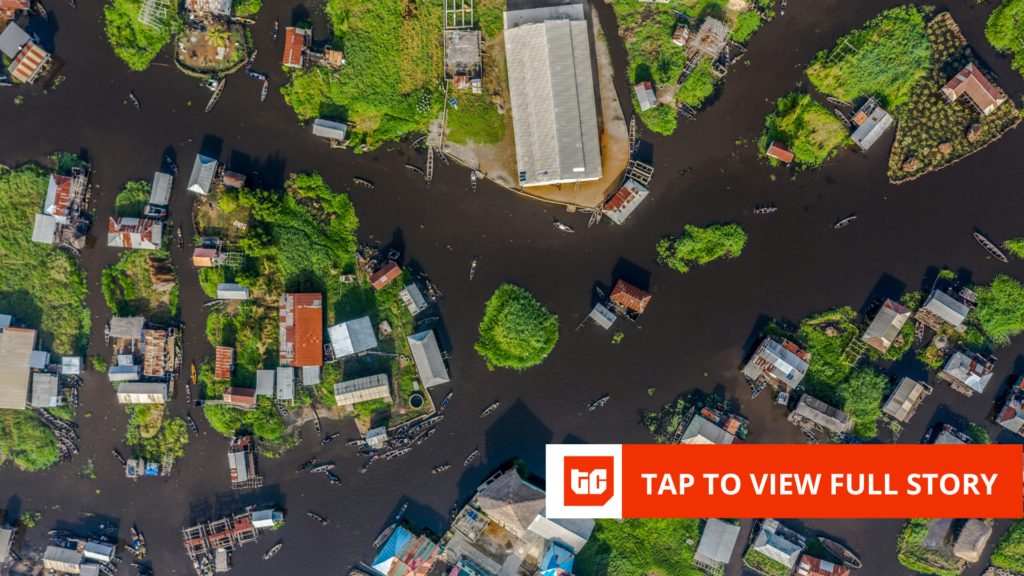In the hierarchy of Africa’s fintech narrative, Francophone countries are often second placed. The Anglophone giants—Nigeria, Kenya, and South Africa—have long dominated headlines and venture capital flows. But to Loïc Aplogan, Business Development Leader for VISA, that storyline is getting old.
“Contrary to some assumptions, the region is not lagging,” Aplogan told on the sidelines of the recent Cyber Africa Forum in Benin. “It’s just a matter of scale.” Nigeria may boast sheer numbers, but cities like Dakar, Cotonou, and Abidjan are quietly cultivating a new fintech DNA, one that’s mobile-native, youth-driven, and increasingly global in ambition.
As Visa moves to deploy $1 billion across Africa, Aplogan is leading the charge in 17 Francophone countries from West to Central Africa. His mandate: embed Visa deeper into the informal economy, build trust with mobile-first users, and co-create the next generation of payment products with local fintechs.
Francophone Africa, particularly Côte d’Ivoire, Senegal, and Benin, has witnessed a surge in mobile wallet adoption, digital payment experimentation, and startup formation over the last five years. But unlike in Anglophone markets where high-profile funding rounds dominate the news cycle, Francophone innovation is happening with less noise.
“Mobile penetration is high. The youth are digital-first. USSD is giving way to app-based ecosystems,” Aplogan says. “We’re building for that transition.”
The region’s fintech landscape is shifting from infrastructure buildout to product refinement. Aplogan claims the new goal involves designing tools for people who live paycheck to paycheck, who operate in informal markets, and who need more than just a digital wallet.
Visa is placing early bets. One example is its recently announced partnership with JUMU in Côte d’Ivoire, a startup focused on financial inclusion. “We’re not just writing checks,” Aplogan says. “We’re co-developing, iterating, and scaling what works.”
Following the user
Ask Aplogan how Visa makes investment decisions in the region, and the answer is refreshingly straightforward: follow the user.
“Consumers here are mobile, informal, and value-conscious,” he says. For many, digital payments are not a luxury, they’re the only viable option. In markets where card infrastructure remains limited, mobile phones have leapfrogged traditional banking rails.
As more consumers switch from USSD codes to smartphones, Visa is pivoting to support app-based ecosystems that offer not just payments but access to insurance, credit, and savings tools. “We want to meet users where they are going,” Aplogan says, “not where they were five years ago.”
It’s a strategy rooted in long-term demographic shifts. Nearly 60% of West Africa’s population is under 25. This is a generation that expects seamless user experiences and is increasingly building them, too.
For Aplogan, the most exciting trend isn’t local, it’s transnational. Francophone Africa, long perceived as inward-looking, is now hosting a melting pot of global fintech experimentation.
“Kenyan, Nigerian, and even U.S.-based fintechs like Wave are launching here. But we’re also seeing homegrown players tackling deeply local problems,” he notes. The friction that once existed between Anglophone and Francophone business models is fading.
What’s emerging is a more open innovation corridor, one where ideas move freely across linguistic borders, from Abidjan to Lagos to Nairobi. And Visa is positioning itself as the bridge. “We want to be the platform that enables this cross-pollination,” Aplogan says.
What Visa wants from startups
While capital is part of the equation, Aplogan emphasises that Visa offers much more to startups than money. “We bring regulatory engagement, global infrastructure, and decades of experience in compliance and scale,” he says. What Visa wants in return are partners with real traction, a clear value proposition, and sensitivity to regional nuances.
That includes a deep understanding of informal commerce, mobile-first design principles, and cross-border frictions. “Innovation should solve real problems,” he adds. “Not just copy what worked elsewhere.”
Personal mission, regional vision
For Aplogan, who’s spent years at the center of Africa’s digital transformation, the mission is deeply personal. “What motivates me is enabling movement, of money, of services, of opportunity,” he says. He frames payments not as a convenience, but as a precondition for economic development.
“If people can’t get paid or transact, everything else stalls,” he adds. “Payments are the foundation.”
This conviction is especially relevant in Francophone Africa, where the pace of change is often misunderstood. “People still underestimate how quickly Francophone Africa is evolving,” he says. “They think we’re behind. I disagree. We’re not following anyone, we’re building our own path.”
For him, that path could redefine the next decade of African fintech. Not as a derivative of Anglophone models, but as a distinct, deeply relevant, and globally competitive ecosystem.
Mark your calendars! Moonshot by is back in Lagos on October 15–16! Join Africa’s top founders, creatives & tech leaders for 2 days of keynotes, mixers & future-forward ideas. Early bird tickets now 20% off—don’t snooze! moonshot..com










